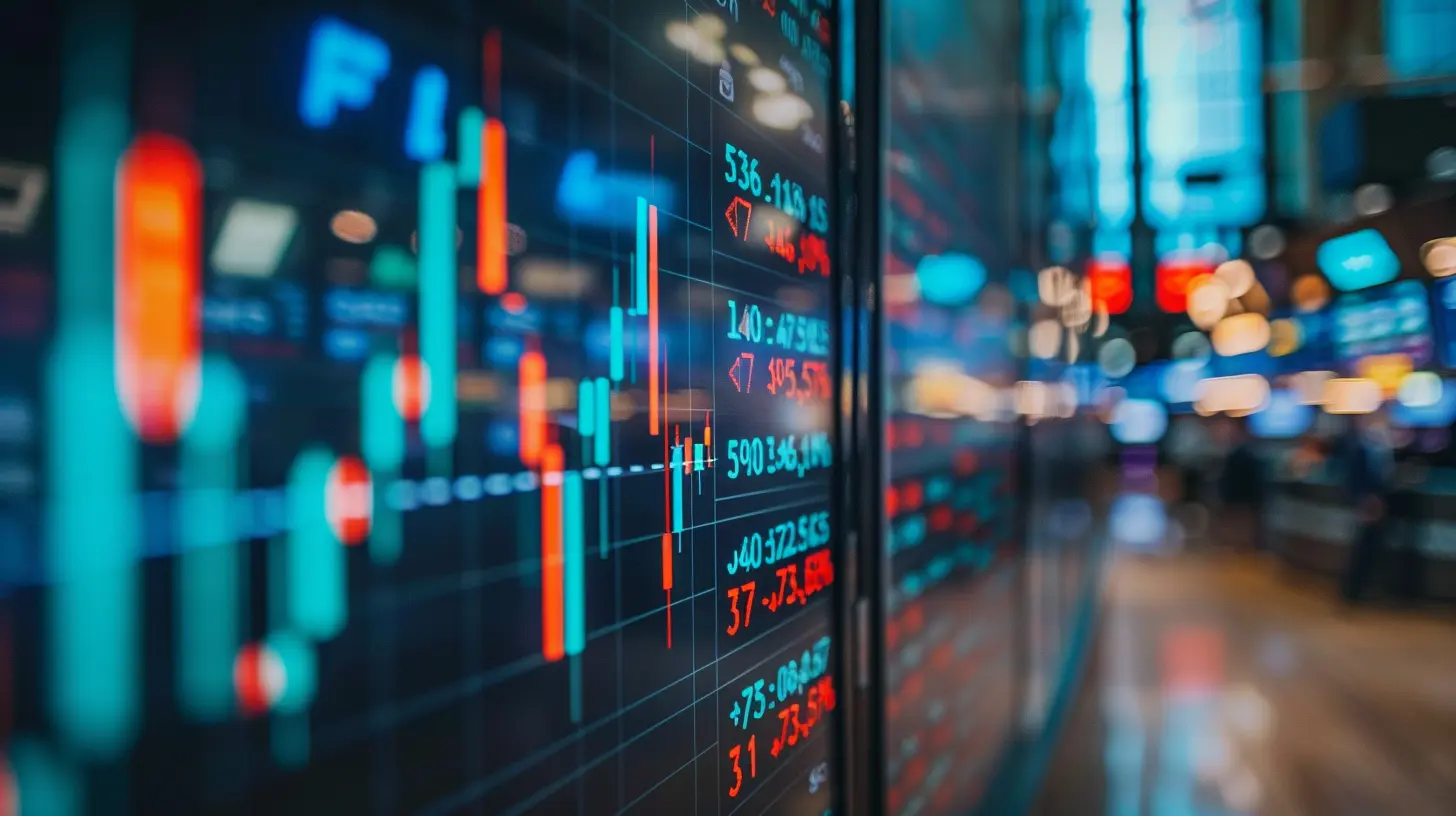The Role of ESG (Environmental, Social, Governance) in Stock Investing
24 November 2025
Alright, folks—grab your fair-trade coffee, put on your sustainably sourced thinking caps, and let’s dive deep into one of the finance world’s trendiest acronyms: ESG. That's Environmental, Social, and Governance for the uninitiated.
Now, if you're imagining a bunch of Wall Street suits holding hands in a circle singing Kumbaya while recycling their stock portfolios, you're not entirely wrong—but there's a lot more to it. ESG has evolved from niche jargon to a full-blown investment strategy that's getting serious attention from investors, big and small.
So what exactly is ESG investing? Why are people betting their money on companies that care about the planet, people, and good ol’ corporate ethics? Let’s break it down and see if this tree-hugging trend actually makes you greener—in your wallet.
What the Heck Is ESG Anyway?
Think of ESG as the moral compass of investing—which sounds wild in a world where profit used to be king and everything else took a backseat.- Environmental: How does the company impact Mama Earth? Are they reducing emissions, minimizing waste, and using renewable energy?
- Social: How do they treat people? Employees, customers, communities—are they ethical, diverse, inclusive?
- Governance: What’s the vibe in the boardroom? Transparent leadership, accountable practices, anti-corruption policies.
Together, these three pillars help investors figure out whether a company is just out to make a quick buck or if they have sustainable long-term goals.
And here’s the kicker—companies that score high on ESG metrics might not just be "nice" to the world; they could be better for your portfolio too.
Why ESG Is More Than Just A Feel-Good Trend
Let’s be honest. The world is literally on fire in some places. Climate change is real, social justice movements are gaining momentum, and investors are waking up. Consumers today want brands with a conscience.But it’s not just millennials with reusable straws driving this shift. Big institutions—like BlackRock and Vanguard—are pouring billions into ESG-compliant portfolios.
Why? Well, there’s a growing body of evidence suggesting that sustainable businesses tend to outperform their less-conscious peers over the long run. Let’s look at a few reasons why ESG is flipping the script when it comes to stock picking.
1. Risk Management: ESG Is Like a Financial Seatbelt
You wouldn’t drive a car without a seatbelt, right? Investing without considering ESG factors is pretty much the same level of reckless.Companies that ignore environmental damage or get tangled in human rights scandals? Yeah, they tend to attract lawsuits, fines, PR disasters, and massive stock dips. ESG metrics help investors avoid these ticking time bombs.
On the flip side, firms with strong ESG practices are usually more resilient. They adapt quicker to regulations, manage crises better, and enjoy stronger reputations. In a world where a single tweet can tank a stock, that’s a big deal.
2. Long-Term Performance: The Tortoise Beats the Hare
Okay, so ESG companies might not always be the flashiest or the fastest-growing. But guess what? They’re playing the long game.- Companies prioritizing clean energy won’t get whiplashed by carbon taxes.
- Those investing in employee well-being have lower turnover, which saves money.
- Businesses with transparent governance? Less likely to implode in a scandal (looking at you, Enron).
So while some traditional investments might skyrocket short-term and crash later, ESG-aligned companies tend to be slow and steady winners.
3. Investor Demand Is Skyrocketing
Let’s talk numbers for a sec. According to the Global Sustainable Investment Alliance (fancy name, we know), over $35 trillion—yes, with a “T”—was in ESG investment globally as of 2020. That’s almost half of all professionally managed assets.Translation? If ESG were a stock, everyone would be buying.
And with more ESG ETFs and mutual funds hitting the market daily, investors of all sizes can get in on the action. You don’t have to be a Wall Street wolf or a Silicon Valley tech bro to stake your claim in the sustainable economy.
4. It's All About the Millennials (and Gen Z…)
Younger investors aren’t just swiping right on ESG—they’re practically marrying it. Millennials and Gen Z aren’t just looking for ROI; they're chasing ROR—Return on Responsibility.These generations care about climate change, diversity, social equity, and digital integrity, and they want their money to reflect those values. This isn’t a trend; it’s a full-blown generational shift in how we view capitalism.
And here’s the juicy part: these folks are set to inherit trillions in the coming decades. So if companies want future investors, they better start polishing their ESG credentials.
ESG Metrics: Numbers That Actually Mean Something
You might be wondering: “Okay, this all sounds great, but how do you measure stuff like ‘ethics’ or ‘sustainability’?”Great question! ESG investing isn’t about trusting your gut—it’s about analyzing real data:
- Environmental scores include carbon footprint, climate risk policies, waste management, and water usage.
- Social scores include diversity hiring, product safety, data privacy, and human rights protocols.
- Governance scores include executive pay, board diversity, shareholder rights, and transparency.
There are entire companies—like MSCI, Sustainalytics, and Morningstar—that assign ESG ratings. So yes, there’s an actual science behind it. But like all ratings, they aren't perfect—some subjectivity still sneaks in. Do your homework!
Debunking the Myth: ESG Hurts Returns
Let’s squash this myth once and for all. Many skeptics say ESG investing means sacrificing returns for virtue. But the data? It begs to differ.One 2021 study from NYU and Rockefeller Asset Management looked at over 1,000 research papers. Guess what? Most found a positive or neutral relationship between ESG factors and financial performance.
Plus, during volatile markets, ESG funds tend to be less risky—because, again, they avoid disaster-prone companies.
So no, you don’t have to choose between doing good and doing well. It’s not like ordering salad and pizza—you can have both.
How to Start ESG Investing (Without Losing Your Sanity)
Feeling inspired? Ready to make your money work for both your future and the planet’s? Nice.Here’s how to get started:
1. Check Out ESG ETFs and Mutual Funds
There are plenty of pre-screened funds that align with ESG principles. Vanguard, iShares, Fidelity—they’ve all got ESG options. Use platforms like Morningstar to compare ESG ratings.2. Use ESG Ratings
Want to research individual companies? Use databases like MSCI ESG Ratings or Yahoo Finance’s sustainability section. Knowledge is power.3. Look Beyond the Label
Just because a fund slaps “green” or “sustainable” on its label doesn't mean it's truly ESG. This is called greenwashing, and it’s rampant. Dig into the actual holdings and methods.4. Think About Your Own Priorities
Wanna save the turtles? Prioritize environmental factors. Passionate about human rights? Weight the social aspect more heavily. ESG isn’t one-size-fits-all, which is what makes it so cool.The Downside: No Free Lunch Here (Sorry)
Hold up—before you go dumping every non-ESG stock like last year’s fashion, let’s keep it real.ESG investing isn’t perfect. There are still challenges:
- Lack of universal standards: One company might score high with one rater, low with another.
- Greenwashing: Some firms talk the ESG talk but don’t walk the walk.
- Limited options in some sectors: Want to invest in clean energy but still need exposure to oil? ESG portfolios might not be fully diversified.
But remember—all investing has trade-offs. The key is to align your choices with your values while being smart about risk and return.
The Future of ESG: Where It’s All Heading
Here’s what we can expect in the coming years:- More regulation: Governments worldwide are starting to enforce ESG reporting standards. (Looking at you, SEC!)
- Improved transparency: Tech is making it easier to track real-time ESG data.
- Mainstream adoption: ESG is no longer a “hippie investor” thing—it’s becoming the norm.
And let’s face it—we’re at a turning point as a society. Companies that ignore environmental and social responsibility… well, they're just not going to survive in the long run.
Final Thoughts: Doing Good Isn’t Just Good—It’s Smart
ESG investing isn’t a fad. It’s not just for vegans, activists, or Birkenstock-wearing finance nerds. It’s a new way of thinking—one that considers how companies make money, not just how much.So whether you're a seasoned investor or just dipping your toes into the market, take a moment to think about what your money is supporting. Because in today’s world, smart investing isn’t just about chasing dollars—it’s about leaving a positive footprint while you do it.
And hey, if you can save the planet and make money while doing it? That’s a win-win we can all get behind.
all images in this post were generated using AI tools
Category:
Stock MarketAuthor:

Harlan Wallace
Discussion
rate this article
1 comments
Alexa Stone
Thank you for shedding light on the importance of ESG in stock investing. It's inspiring to see how integrating these values can lead to more sustainable and responsible investment choices for a better future.
December 22, 2025 at 3:26 AM

Harlan Wallace
Thank you for your kind words! I'm glad you found the article inspiring and insightful. Together, we can promote sustainable investing for a better future!


